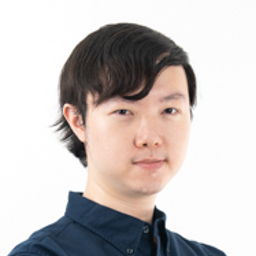Asean should aim for tariff-free trade: PM Wong


 PUBLISHED ONApril 16, 2025 9:20 AMByKhoo Yi-Hang
PUBLISHED ONApril 16, 2025 9:20 AMByKhoo Yi-HangAsean should aim for full tariff elimination across the region, Prime Minister Lawrence Wong said in a speech at the S Rajaratnam Lecture on Wednesday (April 16).
PM Wong, who is also the Minister of Finance, was addressing concerns regarding the ongoing US-China trade war and how this may affect Singapore.
He had previously tackled this issue in Parliament last Tuesday (April 8), where he highlighted the need for Singaporeans to be mentally prepared amid changes to the world they knew.
"The new era will be more volatile, with more frequent and unpredictable shocks," he had warned.
On Wednesday, he explained the three key points Singapore has to take to weather the storm, one of them being the need to champion deeper regional cohesion and integration.
He emphasised the need for Asean's 10 members to "stay cohesive and proactive", adding that the Asean Free Trade Area has benefitted citizens and businesses by being "virtually tariff-free".
"But we cannot and we should not stop here," PM Wong said. "We have to accelerate our integration efforts."
He suggested aiming for 100 per cent tariff elimination across the region and reducing non-tariff barriers, boosting trade within Asean.
Other integration efforts include completing the Asean Digital Economic Framework Agreement and improving development on the Asean Power Grid.
PM Wong also addressed the global stage in his two other points — Singapore's contribution to stewardship of global commons and strengthening our global network of partnerships.
Singapore should assist in the global cooperation in addressing pressing challenges in the world, such as AI governance and climate change, supporting international law and multilateralism, he said.
He stated: "We understand that our interests as a small state are best protected when rules apply equally to all, and we take concrete steps to uphold these rules.
"Singapore has consistently played a constructive role in multilateral forums — not by grandstanding, but by building consensus and finding solutions."
Our country can also serve as an incubator for practical ideas and initiatives as well as share our experience with the world, PM Wong added.
As for strengthening partnerships across the globe, the Prime Minister said that we have to go further than where we are at present.
"We must develop more varied and deeper relations with multiple partners, because the more connected we are, the more resilient we will be, and the better we can navigate uncertainty and withstand shocks," he explained.
He also stated: "Even if other countries turn inward, we have to remain open — open to ideas, open to partnerships and open to opportunity.
"We have no choice, because that has always been Singapore’s way — not to retreat but to reach out; not to build barriers, but to build bridges."
US and China are now entering a full-blown trade war, he said.
Despite US postponing its "reciprocal" tariffs, baseline rates are still much higher than what they used to be, he stated, explaining that businesses are unable to make comfortable long-term plans when tariffs can change in a heartbeat.
Pointing out that US tariffs on Chinese goods are now 145 per cent and Chinese tariffs on US goods at 125 per cent, PM Wong said that trade between the two countries will "grind to a halt".
"The pain will be felt not just by them, but by countries everywhere," he said. "For now, neither side wants to back down. There are no obvious off-ramps; no easy paths to de-escalate."
"The deterioration of trade ties will accelerate the decoupling of the two economies. What we are witnessing is the remaking of the global economy — not as one integrated system, but increasingly as bifurcated ecosystems centred around America and China."
Concluding his speech, PM Wong added: "Let us stay united and weather the storms ahead as one people. Let us continue to turn our vulnerabilities into strength.
"Let us stay true to the spirit that built this nation, and ensure this Little Red Dot continues to shine brightly as a beacon of hope, stability and purpose on the world stage."
For more original AsiaOne articles, visit here.